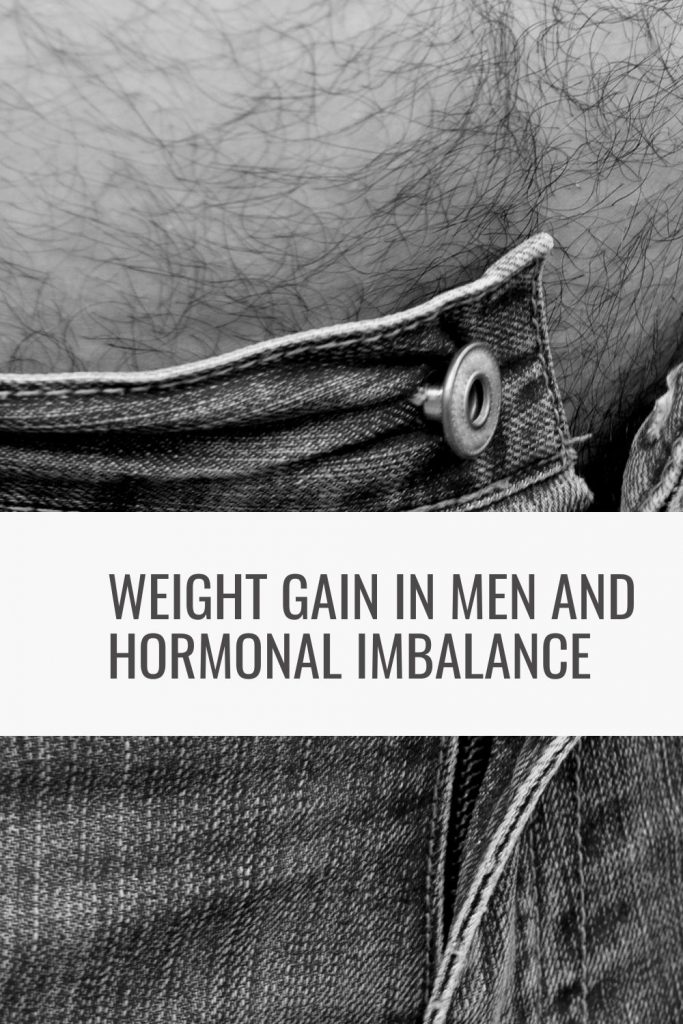Weight gain in men and hormonal imbalance is are common health concerns for men. As per the Centers for Disease Control and Prevention (CDC), over 70% of men in the United States are overweight or obese. Although there are many factors that can cause weight gain, hormonal imbalance is the most common cause. In fact, research suggests that hormonal changes can cause up to 30% of weight gain in men.
Disclosure: This post is for informational purposes only. Talk to your doctor if you have any questions or concerns.
Thus, understanding the link between hormonal imbalances and weight gain is crucial. This can help individuals manage and treat their weight gain effectively.
In this article, we will discuss the link between hormonal imbalances and weight gain in men and explore the available treatment options.

Understanding Hormonal Imbalance
Hormonal imbalance simply refers to a situation where the levels of hormones in the body are not in the correct proportion. And that can lead to various health problems. Hormones are chemical messengers that regulate different bodily functions, including growth, metabolism, mood, and reproductive processes.
When hormones become imbalanced, it can lead to symptoms such as weight gain or loss, mood swings, fatigue, hair loss, infertility, and more.
Major symptoms of hormonal imbalances in men include:
- Cognitive decline
- Hair loss
- Loss of muscle mass
- Low sex drive
- Memory loss
- Depression
- Erectile dysfunction
- Fatigue
Major causes of hormonal imbalances in men include:
- Aging
- Poor diet
- Sedentary lifestyle
- Stress
- Environmental toxins

Treatment Options for Hormonal Imbalances in Men
- Hormone replacement therapy:
Hormone replacement therapy (HRT) is a medical treatment that aims to restore hormonal balance and alleviates the symptoms of hormonal imbalance. In men, testosterone is the primary hormone that is replaced through HRT. It is responsible for the development of male characteristics such as a deeper voice, facial hair, and muscle mass.
Thus, it is advised to get testosterone replacement therapy (especially for men who are above 40). To get the best clinic, you can just search ‘TRT near me‘, and you’ll have multiple options to choose from. Choose a clinic that has qualified doctors and fits under your budget as well.
- Lifestyle changes:
Making certain lifestyle changes can help you manage a few symptoms, such as low energy, mood swings, and even weight management. First, maintaining a healthy diet rich in whole foods, vegetables, and lean protein can help regulate hormone levels. Additionally, engaging in regular exercise and reducing stress through practices such as meditation or yoga can also be beneficial.
It’s also important to avoid smoking and excessive alcohol consumption, which can disrupt hormone levels. Finally, getting adequate sleep and managing weight can also help maintain healthy hormone levels. In short, a balanced lifestyle with healthy habits is the key to managing your symptoms.

- Nutritional supplements:
Nutritional supplements that have been found to be beneficial for managing hormonal imbalance in men include:
- Vitamin D: Low levels of vitamin D are linked with low testosterone levels. Taking vitamin D supplements may help improve testosterone levels.
- Omega-3 fatty acids: Omega-3 fatty acids can help reduce inflammation in the body, which can be beneficial for men with hormonal imbalances.
- Zinc: Zinc is important for testosterone production. Taking zinc supplements can help increase testosterone levels in men with a deficiency.
- Magnesium: Magnesium is also important for testosterone production. Taking magnesium supplements can help increase testosterone levels in men with a deficiency.
However, it’s important to consult with your primary doctor before taking any supplements, as they can have potential side effects or interactions with medications.
Link Between Hormonal Imbalance and Weight Gain
Hormonal imbalances can contribute to weight gain in men. Several hormones in the body, including testosterone, insulin, and cortisol, can affect body weight. Testosterone is vital for maintaining muscle mass and a healthy weight in men. Low testosterone levels can lead to decreased muscle mass, reduced metabolism, and increased body fat, particularly around the abdomen.

Insulin is a hormone that regulates blood sugar levels. Insulin resistance, which is often associated with hormonal imbalances, can lead to high blood sugar levels, weight gain, and an increased risk of developing type 2 diabetes.
Cortisol hormone is released in response to stress. Chronic stress and high cortisol levels can lead to increased appetite, cravings for high-calorie foods, and a buildup of visceral fat, which is a type of fat that accumulates around the organs and increases the risk of health problems.
Hence, hormonal imbalances can contribute to weight gain in men by affecting metabolism, appetite, and fat distribution.
Final Words
Weight gain in men can be linked to hormonal imbalances, such as low testosterone levels, high cortisol levels, and insulin resistance. These imbalances can result from a variety of factors, including poor diet, lack of exercise, stress, and aging.
By understanding the connection between weight gain and hormonal imbalances, men can take steps to address these issues and improve their overall health and well-being.

Were you aware that weight gain in men and hormonal inbalance that they are linked together?




My husband will have to look into this for sure. He has a family history of weight gain as well.
I will have to have my husband take these supplements. That might help him lose weight.
I am surely going to let my husband see this. This is so great and very informative post
This is really informative post, it would be great to share this with my husband and father and brother
I found out some new things for me. I am curious now to find out about women as well!
My husband has always been active and he eats well balanced meals too so his weight is okay. I would like him to start on those supplements though as they could be beneficial for him.
This is something my husband will benefit from reading. He has recently joined the gym which should help.
This was an interesting and informative article. I think these supplements seem useful. Thanks for sharing!
This is very interesting piece, That I have learn a lot about it. Thanks for sharing this with us.